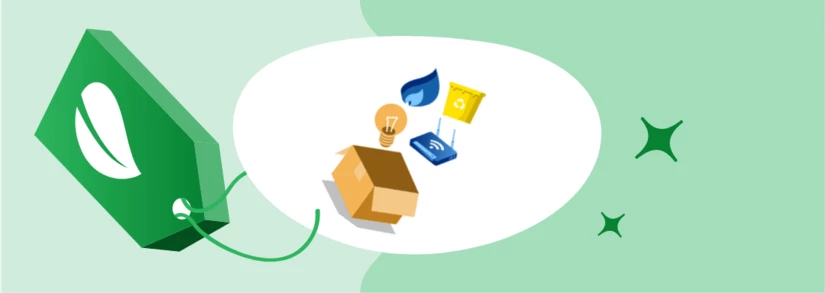Dublin Waste Disposal: Your Bin Options Explained

If you are trying to find out which options for waste disposal Dublin can offer you, then this short guide will help you to understand your options and the importance of disposing of your waste correctly. From breaking down the primary disposal methods to searching for a waste collection provider.
Waste Disposal in Dublin: Introduction
Every year in Ireland, we create approximately 15.7 million tonnes of waste, spread between our homes, places of work and industries.
This waste can come in various forms, from food waste to construction materials. What is important is that when a material comes to the end of its lifespan, it is taken to the appropriate waste disposal facilities Dublin has to offer.
By disposing of our waste correctly, we can give it the chance to do further good, in the forms of being recycled, reused, or as a type of energy generation.
This is exemplified in the Circular Economy Plan. This plan encourages people to be considerate in their waste disposal so that when a material enters the economy, it is recycled and reused as many times as possible before its ultimate disposal. In doing so, we help both the environment and the economy.
- Looking for Specific Waste Disposal Information?
- Check out our Dublin Bin Collection Guide for price comparisons, services, and more.
- You can also see our Dublin Recycling Centre Guide to see their locations, materials accepted, hours, and more.
Waste Disposal Statistics
To help you grasp the scale of our waste output, here are a few quick statistics to consider (based on 2023 EPA data):
- Ireland generated approximately 1.2 million tonnes of packaging waste in 2023.
- In 2022, Irish households generated 1.8 million tonnes of waste alone.
- Just over 40% of all managed household waste was collected in the general waste bin in 2022.
- Over a third of waste placed in the household recycling bins was incorrectly allocated and should have been in the general or organic waste bins.
- Irish households threw away an estimated 221,000 tonnes of food in 2023.
Source: Environmental Protection Agency (2023 data)
From this data, we can certainly see that waste is no small matter. Whether it is reading up on what goes into each recycling bin, or visiting local waste disposal facilities, there is a lot more that we can do to help the environment.
Where Can I Dump Waste in Dublin?
The most traditional form of waste disposal Dublin residents will be familiar with is landfills or dumps. A landfill is a site for the disposal of waste materials, primarily by sorting and compacting the received refuse, before storing them in the ground.
Landfills however can create a myriad of problems both for residents, and the environment. For example, if a landfill is used incorrectly or the landfill management company fails to act in compliance with the law, waste interred at these locations can result in:
- Attracting vermin
- Potentially causing hazardous contamination of the earth and local water supplies
- The generation of harmful gases (like methane)
- Limit land development potential for future generations
Thankfully, with the increasing prevalence of recycling and stepping away from single-use materials, landfill use is steadily dwindling.
In 2007, The Republic of Ireland had a total of 29 landfill sites, but as of 2024, only three active landfills are authorised to accept municipal and other waste types, showing a significant shift in the waste management industry.
That being said, there are still some cases where material cannot be recycled and is also ineligible for fuel generation via incineration or anaerobic digestion. Landfills now have to work with stringent waste and site management rules, hand-in-hand with local authorities and the EPA (Environmental Protection Agency), meaning that if this is the case, your waste is much less likely to cause harm than in the past.
How do I Dispose of Hazardous Waste in Dublin?
The South Dublin County Council handles the disposal of most hazardous and regulated materials. Disposal methods vary by category:
📦 Packaging Waste
If you have a business and produce any type of packaging material, you will be able to find your legal obligations and related costs at the following link.
🚗 End-of-Life Vehicles (ELV)
If your car, van, or trailer is at the end of its life and needs to be disposed of, it can only be done at a licensed Authorised Treatment Facility (ATF). You can find more details about vehicle disposal here.
🔋 Batteries
These are important items that need to be disposed of properly as they contain heavy metals which cause environmental harm. Proper battery waste disposal applies to every entity in the country, learn more about obligations for retailers, producers, and for citizens.
🚘 Tyres
Although not considered hazardous waste, they have been known to cause harm to the environment when not properly discarded. The 2007 Waste Management Regulation outlines the responsibilities and safe disposal of tyres here.
📺 WEEE (Waste Electrical and Electronic Equipment)
You have seen this term a lot, which stands for Waste Electrical and Electronic Equipment.
This applies to many common household items like a TV, radios, mobile phones, toys with batteries, etc. See how to properly discard these items here.
Before throwing away for good any of these items, make sure that firstly you have exhausted all other options regarding the further use or recycling of your items. Remember the three 'R's to help protect our planet, recycling being the very last option:
- Reduce (produce less waste)
- Reuse (use items again for the same or a different purpose)
- Recycle (process used materials into new products)
If there is no other viable method of disposal, check on your local authority's website to see what items and materials are accepted.
Be aware also that sites usually charge a gate access fee for domestic users, or charge by the tonne for commercial waste disposal.
Household Waste Disposal and Collection
Of course, the waste disposal method that we are most familiar with is that which we use in our own homes: waste bins.
As each waste collection company offers its own forms of packages, services, prices and conditions, it is important to consider what criteria are important to your home before hiring a waste disposal company in Dublin. For example:
- What is my budget?
- How much waste do I output, and what size bins are appropriate?
- How often do I need my recycling bins to be collected?
- Does this company operate in my area?
Have a look at our complete and comprehensive guide to Dublin household bin collection guide for all the details you require.
Recycling Centres for Disposals
The third option for waste disposal Dublin can offer you is to utilize recycling centres, civic amenity centres, and bring banks.
Typically you will find that you need to dispose of materials that are neither suitable for your household recycling bins nor a landfill. A few examples include:
- Batteries
- Lightbulbs
